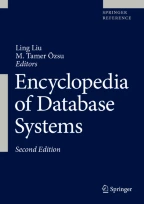Definition
Quality is an abstract and subjective aspect for which there is no universal definition. It is usually said that there is a quality definition for each person. Perhaps the most abstract definition for this topic is that the data warehouse quality means the data is suitable for the intended application by all users. In this way, it is very complex to measure or assess the quality of a data warehouse system. Normally, the data warehouse quality is determined by (i) the quality of the data presentation and (ii) the quality of the data warehouseitself. The latter is determined by the quality of the database management system (DBMS), the data quality, and the quality of the underlying data models used to design it. A good design may (or may not) lead to a good data warehouse, but a bad design will surely render a bad data warehouse of low quality. In order to measure the quality of a data warehouse, a key issue is defining and validating a set of metrics to help to assess the...
Access this chapter
Tax calculation will be finalised at checkout
Purchases are for personal use only
Recommended Reading
Basili V, Weiss DA. Methodology for collecting valid software engineering data. IEEE Trans Softw Eng. 1984;10(6):728–38.
Briand L, Morasca S, Basili V. Property-based software engineering measurement. IEEE Trans Softw Eng. 1996;22(1):68–86.
Golfarelli M, Rizzi S. Data warehouse testing: a prototype-based methodology. Inf Softw Technol. 2011;53(11):1183–98.
ISO/IEC 25010:2010(E). Systems and software engineering – Systems and Software Product Quality Requirements and Evaluation (SQuaRE) – system and software quality models. Geneva: International Organization for Standardization; 2010.
ISO/IEC 9075. Database languages – SQL. Information Technology; 2008
Jarke M, Lenzerini M, Vassiliou Y, Vassiliadis P. Fundamentals of data warehouses. Berlin: Springer; 2010.
Jeusfeld MA, Quix C, Jarke M. Design and analysis of quality information for data warehouses. In: Proceedings of the 17th International Conference on Conceptual Modeling; 1998. p. 349–62.
Lechtenbörger J, Vossen G. Multidimensional normal forms for data warehouse design. Inf Syst. 2003;28(5):415–34.
Lehner W, Albretch J, Wedekind H. Normal forms for multidimensional databases. In: Proceedings of the 10th International Conference on Scientific and Statistical Database Management; 1998. p. 63–72.
Othayoth R, Poess M. The making of TPC-DS. In: Proceedings of the 32nd International Conference on Very Large Data Bases; 2006. p. 1049–58.
Poels G, Dedene G. DISTANCE: a framework for software measure construction, Research report DTEW9937, Katholieke Universiteit Leuven; 1999. p. 46.
Serrano M, Calero C, Piattini M. Validating metrics for data warehouses. IEE Proc Softw. 2002;149(5):161–6.
Serrano M, Trujillo J, Calero C, Piattini M. Metrics for data warehouse conceptual models understandability. Inf Softw Technol. 2007;49(8):851–70.
Si-Saïd S., Prat N. Multidimensional schemas quality: assessing and balancing analyzability and simplicity. In: Proceedings of the 22nd International Conference on Conceptual Modeling; 2003. p. 140–51.
Vassiliadis P. Data warehouse modeling and quality issues. PhD thesis. Athens: National Technical University of Athens; 2000.
Wohlin C, Runeson P, Höst M, Ohlson M, Regnell B, Wesslén A. Experimentation in software engineering. Heidelberg: Springer; 2012.
Author information
Authors and Affiliations
Corresponding author
Editor information
Editors and Affiliations
Section Editor information
Rights and permissions
Copyright information
© 2018 Springer Science+Business Media, LLC, part of Springer Nature
About this entry
Cite this entry
Romero, R., Mazón, JN., Trujillo, J., Serrano, M., Piattini, M. (2018). Quality of Data Warehouses. In: Liu, L., Özsu, M.T. (eds) Encyclopedia of Database Systems. Springer, New York, NY. https://doi.org/10.1007/978-1-4614-8265-9_289
Download citation
DOI: https://doi.org/10.1007/978-1-4614-8265-9_289
Published:
Publisher Name: Springer, New York, NY
Print ISBN: 978-1-4614-8266-6
Online ISBN: 978-1-4614-8265-9
eBook Packages: Computer ScienceReference Module Computer Science and Engineering
